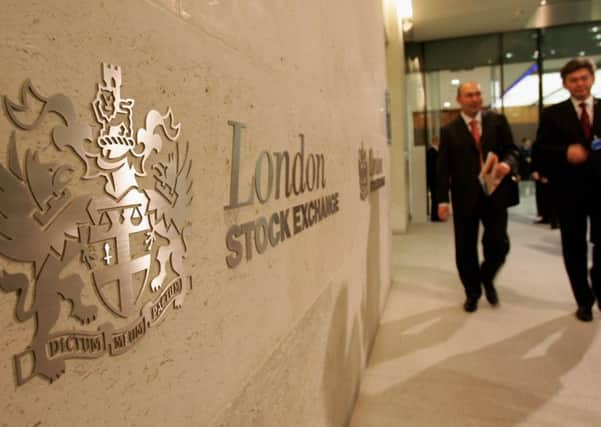London and Frankfurt now flogging a dead bourse
This article contains affiliate links. We may earn a small commission on items purchased through this article, but that does not affect our editorial judgement.


New York Stock Exchange owner Intercontinental Exchange (ICE) may find it impossible to resist a touch of schadenfreude now that the £24.5 billion merger between the London Stock Exchange and Deutsche Boerse looks to have collapsed.
More tangibly, might ICE decide to come back for another tilt at the embarrassed London exchange after it expressed an interest at the time the LSE and DB announced their proposed tie-up a year or so ago?
Advertisement
Hide AdAdvertisement
Hide AdLooking at the way Kraft Heinz moved to snaffle up Anglo-Dutch food giant Unilever last week, even if that deal was quickly derailed, it would not be the first foreign company to view British assets with a renewed appetite since sterling collapsed in value following last June’s Brexit vote. The Chicago Mercantile Exchange might also renew its interest in the LSE, a totem of the UK financial establishment that many in the City did not want to see lose its independence to Frankfurt.
The London and Frankfurt exchanges had been locked in rigorous negotiations with the European Commissioner competition commissioner Margrethe Vestager both before and after that vote. The vote did not on its own scupper the LSE/DB deal as the negotiations with the EC were about practical, commercial details rather than patriotic tub-thumping. But it certainly did not help the mood music behind a potantial landscaping-changing transaction.
The apparently insuperable sticking point was Vestager ordering the LSE to sell its Italian government bond-trading arm, MTS. The London Stock Exchange boss Xavier Rolet said the request was “disproportionate” as MTS was “systemically important”, indicating a sale would in reality have involved disposing of the group’s entire Italian division. The LSE, founded in 1801, also owns the Milan-based Borsa Italiana.
It is understood Rolet was particulary angry because the LSE had already agreed in the negotiations with the EC to sell off its French clearing arm LCH.Clearnet in January to get the deal cleared.
But to no avail. To be fair, there were also political tensions about the Anglo/German marriage, with the Germans sometimes expressing concern that they were ceding too much in terms of operational control to London. Thomas Schaefer, the German finance minister of the state of Hesse, had called for the combined HQ to be based in Frankfurt following the UK’s Brexit vote. The LSE, behind doors, no doubt contered that London’s equities, bonds and forex markets exceeded the rest of the EU combined.
The Brexiteers will be joyous, while the Remainers were always more agnostic about “losing” the LSE to be subsumed in an Anglo/Teutonic giant.
The merger of the two rival exchanges was aimed at spawning a giant trading powerhouse better able to compete with the big beasts across tmerlantic. Hence, the interest of the Walls Street players in gatecrashing it in the early days.
Advertisement
Hide AdAdvertisement
Hide AdThe proposed marriage’s collapse could be confirmed at the beginning of April, when the EC is due to give its final ruling. But it is difficult to not conclude it is already dead in the water.
Formal talks with rival suitors woud be unlikely to begin before then, but that would not preclude private, preliminary phone talks, analysts were saying last night. Rolet must be shocked. This achievement was meant to be the cherry on the cake of a long and successful career, not least in expanding the LSE’s operations since the former Goldman Sachs banker joined in May 2009. Likewise, at DB, chief executive Carsten Kengeter’s dream is now a thing of shreds and patches. Kengeter is also under investigation by German prosecutors into a share transaction made in December, but he continues to receive backing from Deutsche Borse’s supervisory board.
A panoply of 11 top banks and brokers were involved in giving advice to the protagonists, and they also leave the field with bruises and more prosaic fees than the $100 million some estimated for a successful consummation.
In a shock statement on Sunday night, presumably after spending a weekend mulling a decision probably taken by the EC on Friday, the LSE put out a brief statment saying: “Based on the commission’s current position, LSE believes that the commission is unlikely to provide clearance for the merger.
“Nevertheless, the LSE board remains convinced of the strategic benefits of the merger and recognises the strong support from shareholders for the transaction. LSE will continue to take steps to seek to implement the merger.”
Analysts said somewhat dismissively yesterday that this was largely whistling in the dark mixed with top management at the London and Frankfurt bourses “still obviously being in something of denial”, as one City guru phrased it.
